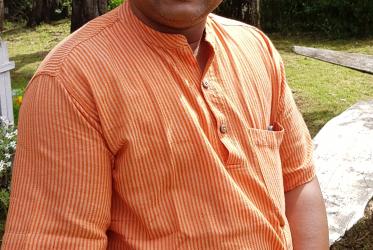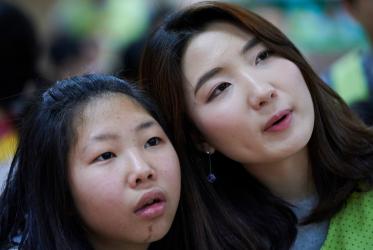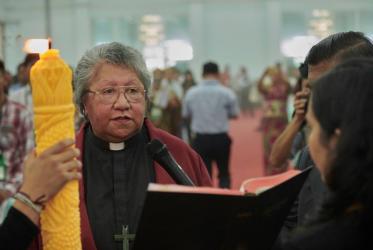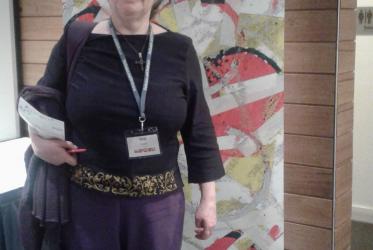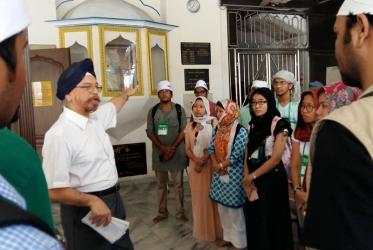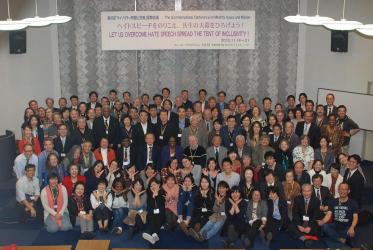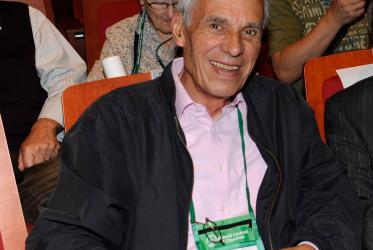Displaying 1 - 19 of 19
Promoting human dignity through art
06 September 2022
"Light of Peace" book now available in Korean
06 January 2021
In a COVID-stricken world, “everyone is important”
23 October 2020
Dr Samuel George: “Ensure all are included"
12 June 2018
Christian and Muslim promote spiritual solidarity
14 June 2017
Young ecumenists address new realities of global movement
25 February 2016
Japanese churches discuss minority issues
01 December 2015
Churches to be more inclusive of persons with disabilities
16 October 2014
Religion, Power, Politics: A conversation with Konrad Raiser
01 November 2013





